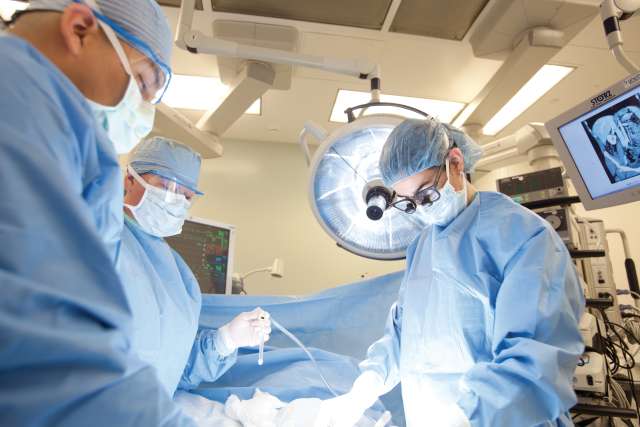Artificial intelligence will play a crucial role in the future of patient care, a panel of Southern California hospital leaders said at the , held May 25 on the UCLA campus.
AI is already helping to interpret data, build predictive models, streamline procedures and support communication with patients, said president of UCLA Health and CEO of the UCLA Hospital System, who hosted the panel discussion.
“We’re seeing some really promising developments in artificial intelligence,” she said.

At in South Los Angeles, AI systems are improving patient safety and clinical care by monitoring patients and alerting staff to irregularities, said CEO Elaine Batchlor, MD. Artificial intelligence is also used to connect with patients through a chatbot, as is the case at UCLA Health, and is supporting clinicians with electronic health records.
“We’re evolving toward ambient transcription, toward voice commands – so they can interact with the records through voice commands,” Dr. Batchlor said. “Virtual reality (is) being used in training, and virtual care that can extend the time of our providers.”
is adopting similar automated transcription programs to ease the screen time required by electronic health records, said CEO Chad Lefteris.
At , tools are being built to integrate data from imaging files, spreadsheets and written documents, said Jeffrey Golden, MD, vice dean for research and graduate education.
This integrated data picture allows health care professionals “to better understand our patients, to better understand populations of patients, and to … improve safety, improve quality, improve outcomes, improve diagnostic decision-making or therapeutic decision-making,” Dr. Golden said. “All of those are coming from being able to interrogate all the data simultaneously, as opposed to having these silos of data that don't actually interact with each other.”
AI can also help expedite workloads, offsetting some holes created by staffing shortages, said Anish Mahajan, MD, CEO and chief medical officer of .
“In radiology and pathology and these sorts of highly specialized physician fields, where often you need 24-hour coverage and we have labor shortages, we need further AI applications,” Dr. Mahajan said, “to make our health systems work really well in a 24/7 fashion.”
The future of AI in medicine was just one aspect of innovation discussed at the daylong LA BEST conference, which brings together scientists and biotech leaders to support the future of the life-sciences industry.
Featured speakers at the event included UCLA Chancellor Gene Block, Pfizer Chairman and CEO Albert Bourla, PhD, and Daren Chang, director general of the UN World Intellectual Property Organization.



